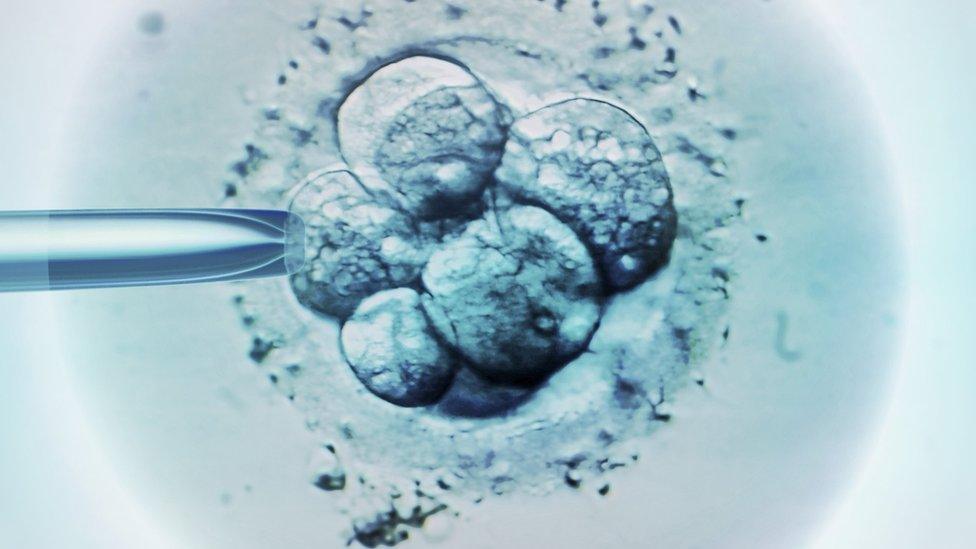Multiple rounds of IVF 'increases chances'
- Published

The statistics offer a more meaningful picture of success rates, researchers say
Going through multiple rounds of IVF increases the chances of having a baby, a new study has found.
The research followed more than 56,000 women from Australia and New Zealand who had undergone IVF.
It found that 33% of women had a baby as a result of their first IVF cycle. By the eighth cycle, the success rate had increased to between 54% and 77%.
The study offers a clearer estimate of the chances of success from undergoing multiple cycles, the researchers said.
Success rates are often quoted on one round alone, they said.
"If you keep coming back for more treatment, your success rate ends up being higher," said co-author Prof Michael Chapman from the University of New South Wales.
However, he said outcomes varied significantly depending on age.
Statistical range
The , published in the Medical Journal of Australia, found the overall chance of having a baby by the eighth cycle was at least 54% and possibly as high as 77%.
The range was given because some women in the study did not complete eight rounds. The lower estimate - 54% - assumes that women would not have had a baby if they continued with more IVF after an unsuccessful cycle.
Although repeated attempts increased the overall success rate, results varied according to the mother's age.
'High hopes' - one couple's experience
Juliette was born in Sydney in April
Sydney couple Debora Gallo, 39, and Nina Ponten, 35, went through five "rollercoaster" fertility treatment cycles before they had their baby girl, Juliette.
"We did not get clear estimates of success rates at all - we were just going in blind and thinking we will give it another go," said Ms Gallo.
The couple started their first fertility treatment two-and-a-half years ago and completed three rounds of IUI (intrauterine insemination) followed by two IVF cycles, which Ms Gallo described as "incredibly emotional".
She said the pair found the IVF process draining and invasive, after hoping to conceive during the first cycle.
"We look at her and it is all worth it," Ms Gallo said.
"For women starting treatment before the age of 35, 44% will take home a baby after their first cycle," Associate Prof Georgina Chambers told the 大象传媒.
"Two out of three [women under 35] will have a baby after three cycles, and this will increase to between 70-90% after eight cycles."
But the likelihood of success decreases significantly with age.
"If we look at women who start treatments between the ages of 40 and 44, 11% will take a baby home in their first cycle and by the eighth cycle about 20-38% will have a baby," said Associate Prof Chambers.
She said women who commenced treatment after 45 have "very low success rates" using their own eggs.
"Whether IVF treatment should be commenced or continued should ultimately be a decision for the patient and her fertility clinician," said Associate Prof Chambers.